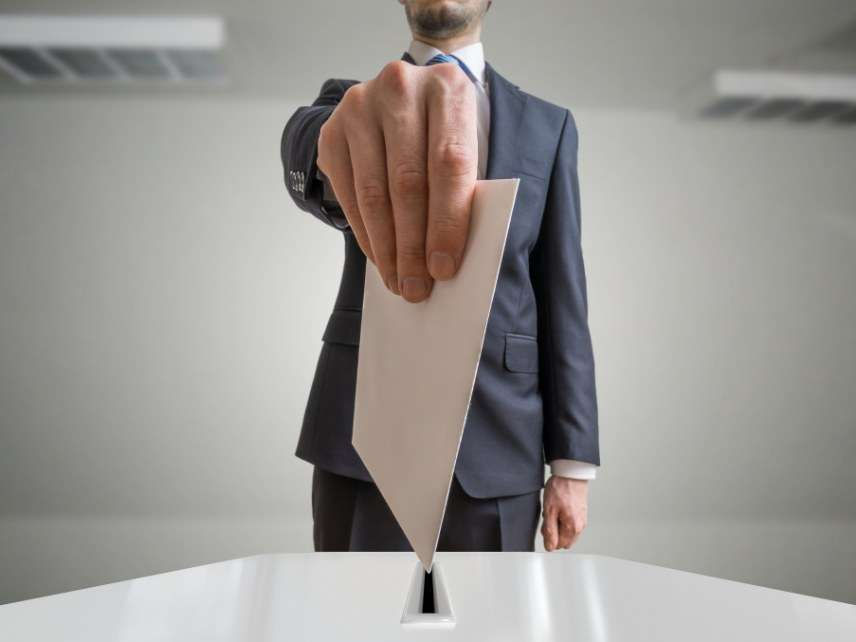Maine Voters Prepare to Rank Their Congressional Candidates to Choose Winners
- OurStudio

- Oct 23, 2018
- 3 min read

Vchalup / Dreamstime.com
In just a couple of weeks we're all going to see an election experiment that could perhaps change the way votes are counted—or so some folks with their eyes on Maine hope.
November's election will be Maine's first use of ranked-choice voting to determine the winners of three elections—for one U.S. senator and two U.S. House seats. And with the way polls for at least one race are going, independent-minded voters are going to affect the outcome in a manner that can actually be tracked.
In ranked-choice voting, people are asked not to just select one candidate for office, but to rank the candidates by order of preference. If there are four candidates, for example, you can choose the candidate you prefer the most and also rank the others second, third, and fourth.
When it comes time to count the votes, in order for a candidate to win, he or she must have a majority of the votes, not just a plurality. If no candidate wins a majority of the vote, the candidate with the least number of votes is eliminated from the race. But those votes aren't thrown away. The ballots are tallied again, and for those who voted for the eliminated race, their second choice is counted instead. And so it goes, until one candidate has a majority of the votes and is declared the winner.
The point of ranked-choice voting is to try to enfranchise voters by making it possible to vote for third-party or independent candidates without actually "throwing their vote away." Proponents of ranked-choice voting see it as a tool of making candidates reach out to a larger pool of voters rather than just playing to their voting bases in "winner takes all" campaigns that mostly focus on getting the right voters to come to the polls. Ranked-choice voting doesn't necessarily make it easier for third-party candidates to win, but it makes their voices and their voters harder to ignore.
Several cities in the United States have ranked-choice voting for local races. Maine, as a result of a couple of state ballot initiatives, will be implementing it for the first time for federal congressional races. Voters had actually decided they want to have ranked-choice voting for many state-level elections as well, but Maine's constitution explicitly requires a plurality of votes to be declared the winner of those elections, not a majority. An advisory from the state's top court warned that the state's constitution needs to be altered, but lawmakers who do not want to see ranked-choice voting implemented have dragged their feet and have not yet done so. So to avoid that constitutional concern, this election will only cover federal races.
Now attention is focused on Maine's 2nd Congressional District, where incumbent Republican Rep. Bruce Poliquin is fending off a challenge from Democrat Jared Golden, and two independents, Tiffany Bond and Will Hoar. Polling shows that the two independents have almost no chance of winning, getting less than 10 percent of the vote between the two of them in most polls.
But the polls also show pretty much a dead heat between Poliquin and Golden. FiveThirtyEight's poll analysis gives the edge to Golden, but it's far from secure. It's very likely that as the first round of votes are tallied, neither Poliquin nor Golden will garner more than 50 percent of the vote. Therefore, what's going to determine the outcome of this race may very well be who voters for the two independents selected as their second choice—or even their third.
Fundamentally this means independent voters will determine the outcome of the race in a way that doesn't make them "spoilers." They are not depriving the major party candidates of votes, not that the Democrats or Republicans should feel entitled to them. Instead, independent and third-party voters get to have their cake and their … less tasty, more mainstream cake, if they would like. Because of this ranked-choice voting system, we'll be able to see exactly what's going on in the heads of independent voters. They can vote for their favorite and then select the Democrat or the Republican as their second choice. Or they may not. Voters aren't required to rank their choices. It's an option.
When the final votes are tallied, the winner may well be the one who best convinced those who do not identify as Democrats or Republicans to vote for them. Partisans often whine that third-party voters end up helping their opponents. On a fundamental level, this is political entitlement nonsense that improperly treats voters like they belong to the political parties instead of the other way around. But it's also often not entirely true. Polling often shows third-party voters split between the main parties. In this election, we'll get to be able to track where independent votes actually go.




Comments